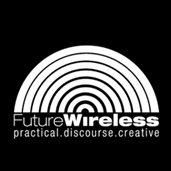
.programme
.background
.contributors
.visions
.links / resources
 |
.programme |
| .background | |
| FUTURE WIRELESS:practical.discourse.creative Wireless utopia or dysfunctional dystopia? Wireless technologies have changed the world and continue to do so at an unprecedented rate. But as we embrace these technologies, we also need to ask how they are changing our personal and social spaces? Do we really want mobile phone calls on commercial flights – or is 'always-on' culture making us wireless wage slaves? Who owns the wireless world and how can we truly realise its creative potential beyond the realms of corporate culture? Has wireless technology liberated communication or has it simply revealed a darker, more dysfunctional side to our natures? What can users and practitioners do to take control of the airwaves and shape and colour their own future? These are just some of the global issues which Future Wireless will address - not just through live debate - but also through practical demonstration, workshops and unique artist interventions. Cybersalon, working in partnership with the Science Museum, Open Spectrum UK and NODE.London, has commissioned a day of debate, guerrilla art and wireless workshops, and assembled an international group of cultural commentators, researchers and artists alongside free wireless network activists and commercial developers to probe the nature, impact and potential of the wireless internet, mobile telecommunications and other radio based technologies. Other events in the NODE.London Autumn 05 season: Monday, 26th - Fri 31st September: Saturday, 1st - Sunday, 2nd October - WSFII: Friday, 7th - Saturday, 8th October 2005: |